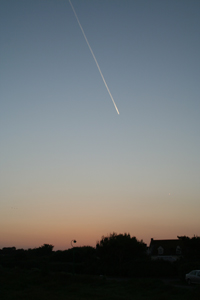










Jack Mapanje
Niyi Osundare
Lauri Kubuitsile
Peter Addo
N.Casely-Hayford
Kola Boof
Courttia Newland
Nii Kwei Parkes
Eusebius
McKaiser
Anietie Isong
Dike
Chukwumerije
Chinelo Achebe-
Ejeyueitche
Akin Adesokan
Tolu Ogunlesi
Adaobi Tricia
Nwaubani
Eghosa Imasuen
Mpalive Msiska
Roi Kwabena
Emmanuel
Sigauke
Nnedi Okoroafor-
Mbachu
George E. Clarke
Kimyia Varzi
Obemata
Uche Nduka
Amatoritsero Ede
Obododimma Oha
Leila Aboulela
James Whyle
Koye Oyedeji
Obiwu
Becky Clarke
Nike Adesuyi
Derek Petersen
Afam Akeh
Olutola Ositelu
V. Ehikhamenor
Molara Wood
Chime Hilary
Wumi Raji
Chuma Nwokolo
 |
|||||
As might be expected
it has been hard work following up what our readers generously consider
the outstanding debut issue of Photo: © countycare images |
|||||
| Welcome | |||||
| The editorial theme this month is Black and African Writing in Britain. Like all other immigrant literatures in Britain, this is often referred to as Black British Literature but not everyone involved would agree that both mean the same thing. There are those who don’t see any ‘African’ in ‘Black British’. Others would, however, dispute our separation of the word ‘Black’ from ‘African’, while some would simply scorn our persistence in pursuing the very theme itself. That is the nature of the challenge we set ourselves this month. We are not expecting that these longstanding difficulties and disputes associated with our theme will be resolved by our intervention. We expect indeed that the new eyes with which we are seeing this old subject will somehow inform and complicate it further, renewing interest and inquiry in the area. Mpalive Msiska, Malawian poet and scholar of Black and African writing in Britain, is one of those contributing essays on the theme in this issue, and we focus on it in our provocative ‘Profile’. Regarding useful link-people and experienced facilitators in Britain’s Black literary community/ies there are few better placed than Becky Ayebia Clarke, so we decided to interview her in order to better inform ourselves with some of her experience. The other interesting interview was conducted for us by Wumi Raji, Nigerian poet and scholar, He interviewed Derek Peterson of Cambridge African Studies. Other interesting introductions we are making to our readers in this issue include Adaobi Tricia Nwaubani, whose debut novel will be published by Hyperion, USA, Akin Adesokan, author of Roots in the Sky, Dike Chukwumerije, who writes from Scotland, the South African actor and screenwriter James Whyle, and Lauri Kubutsile, who writes from Botswana. We welcome Kola Boof, writing from the USA but as African as they come, and also Courttia Newland and Nii Kwei Parkes, two prominent Black British writers. With Eusebius McKaiser’s sardonic humour as guide we should be laughing and rolling through the new South Africa. But will we? There are probably enough published volumes of poetry and more than enough teaching experience between our contributors Niyi Osundare and Jack Mapanje to inspire and inform many doctoral dissertations on African poetry. In anticipation of our next issue, which focuses on South African writing, we offer a provocative reading of Coetzee, Roy Campbell and Nadine Gordimer by Obi Iwuanyanwu, who writes as Obiwu, Director of The Writing Centre at Central State University, Wilberforce, Ohio, in the US. A surfeit of riches. That is how we hope our readers
will see African Writing in its second issue. And we hope you will
be sufficiently moved to assist our new Readership Survey with the
required information. We want to serve you better. Send any letters
or reactions inspired or provoked by African Writing and we will
publish them. This issue of Editor |
|||||